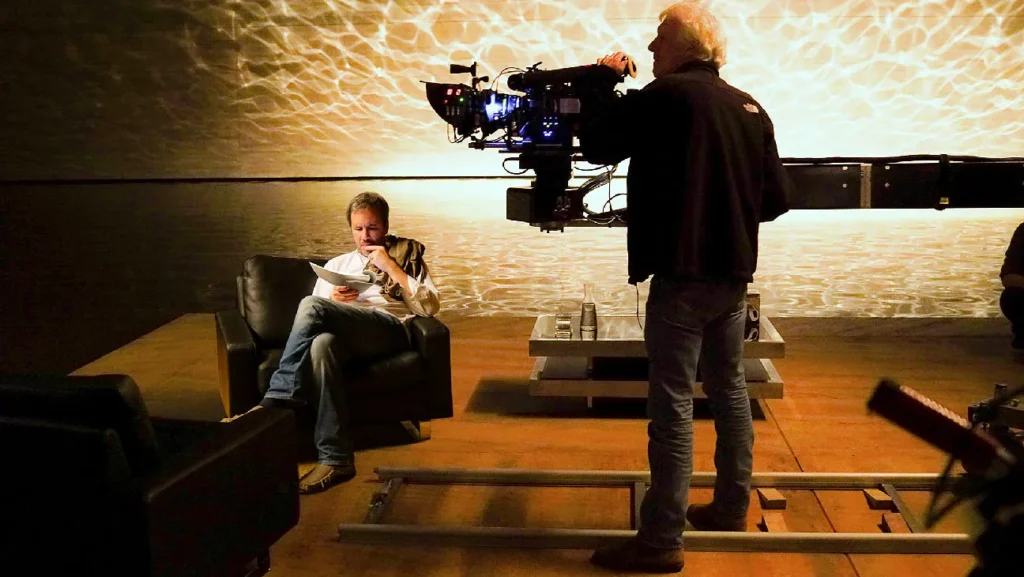Director of Photography in the UK: what a DoP does, skills, duties and real-world rates.
A Director of Photography, often called a DoP or cinematographer, is the creative and technical lead for the moving image. They shape the look and feel of a project through choices about framing, lenses, movement and light, and they do this in close partnership with the director. In practice that means developing the visual language of the story, planning the toolkit and crew that will realise it, and steering image quality from the first scout to the final grade.
At Crew Studio we work with experienced DoPs across film, television and commercials. If you need help finding the right fit for your script or brief, our production team can book trusted cinematographers and crew across the UK.
These align with ScreenSkills guidance for the role, which highlights script analysis, collaboration with the director, research and testing, and the supervision of camera, grip and lighting teams.
ScreenSkills describes this phase as defining the look and translating creative ideas into practical plans and crew needs.
A DoP is responsible for the photographic core of the production, which includes directing the work of camera, grip and lighting teams.
The National Careers Service notes that hours and working patterns vary and that many DoPs freelance, which means involvement can continue through delivery.

Roger Deakins, celebrated for his lighting craft, discussed using computer controlled and highly practical lighting strategies on Blade Runner 2049, which helped the team adapt on set while protecting a distinctive look. It is a useful reminder that innovation often starts from clear visual intent and rigorous planning.
The DoP sets the visual strategy and leads camera, lighting and grip. The camera operator focuses on the physical execution of the shot and the movement of the camera, working under the DoP’s direction, particularly on larger shows. On smaller sets one person may cover both responsibilities. UK guidance describes camera operators as the people who capture the action and manage composition and movement, which complements the DoP’s wider creative and supervisory role.
Rates vary with sector, scale, schedule, kit responsibilities and reputation. There is no single fixed figure, so productions usually benchmark against union guidance and market surveys, then negotiate scope and terms.
As a practical takeaway, productions often budget a DoP on a daily or weekly fee, then agree separate costs for camera and lighting packages if the DoP supplies any kit. Overtime, prep and tech days, travel and grade attendance should be set out in the deal memo from the start. The common TV drama day pattern is ten working hours plus one hour for lunch, while major features often contract for eleven plus one, which influences weekly totals and overtime triggers.
If you would like a reality check for your project, Crew Studio can help you scope a fair DoP fee for your scale and schedule, and can also source camera, grip and lighting packages to suit.
A capable Director of Photography will elevate story, pace and performance through light and camera. If you are exploring a shoot and want a cinematographer who fits your tone, budget and schedule, Crew Studio can help you hire a Director of Photography in the UK and provide full production support from tests to grade.
Join The Crew. We’ll only send you exciting emails.